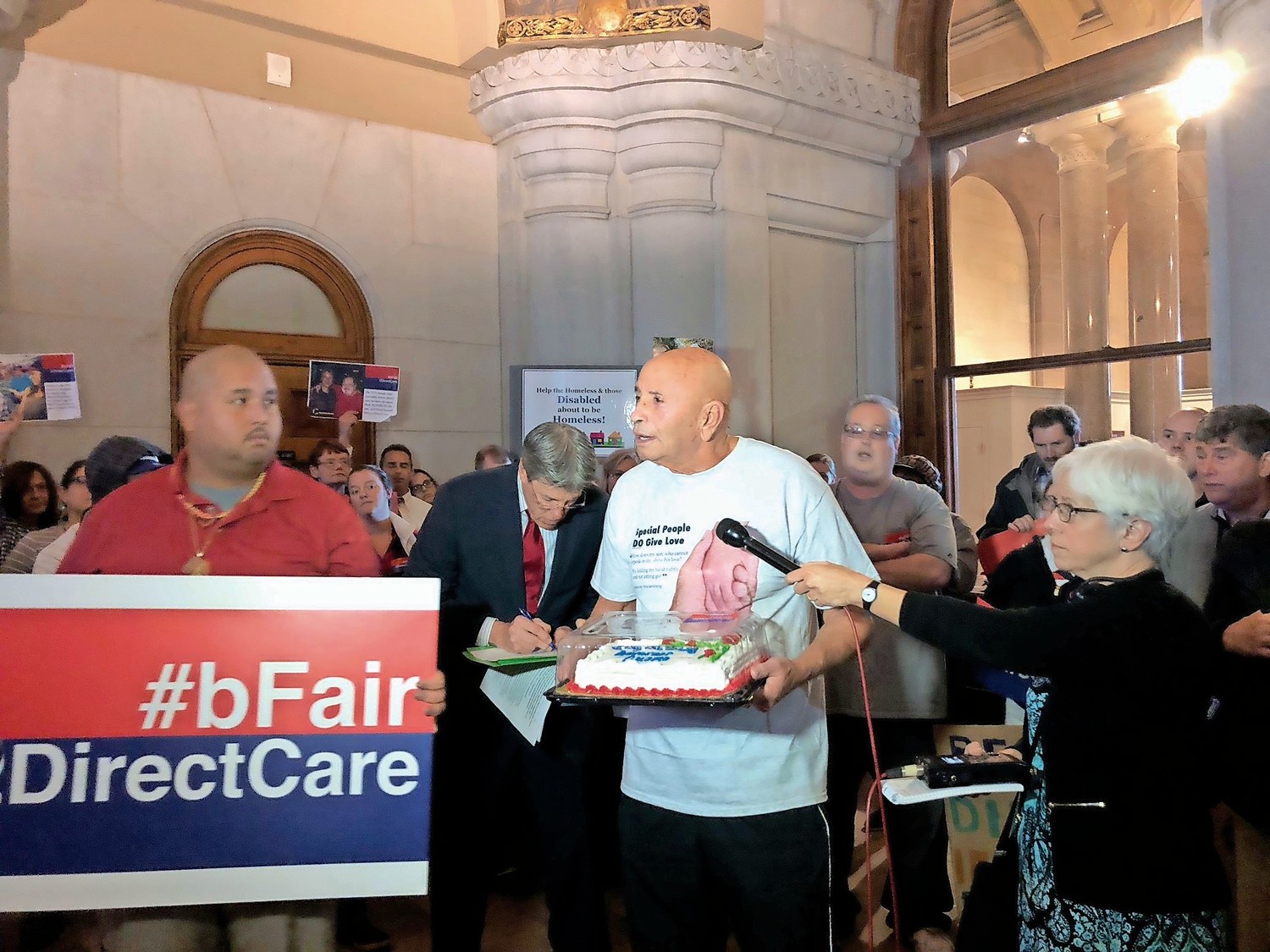Direct care workers, advocates push to speed up pay increases
Former assemblyman from Long Beach leads rally in Albany
Former state Assemblyman Harvey Weisenberg led a rally at the state capitol on Dec. 6 to call on legislators to speed up already approved wage increases for workers who care for people with disabilities.
Weisenberg — who has a developmentally disabled son and founded the Harvey and Ellen Weisenberg Foundation to help people with disabilities — joined dozens of direct care workers, state lawmakers and disabled people to urge Gov. Andrew Cuomo and the Legislature to speed up a plan to pay workers a living wage.
The rally was organized by a statewide coalition called #bFair2DirectCare, which consists of tens of thousands of people across the state with developmental disabilities such as autism, Down syndrome, cerebral palsy, as well as their family members, advocates, non-profit providers and the direct care workforce. Those direct support professionals help more than 130,000 disabled people in the state.
Weisenberg said some caregivers — mostly women and people of color — are so poorly paid they have been choosing to work in the fast food industry instead, and that the low salaries have created high turnover rates and staffing shortages at many care facilities throughout the state.
The rally was held in the capitol’s “War Room,” where Cuomo in March pledged that he would not sign a state budget that did not include the first phase of living wage funding for DSPs.
That month, the state Senate and Assembly earmarked $55 million in funding in the state budget that would go toward salary increases for caregivers who provide services to those with special needs. The $55 million was the first of six installments to raise DSP wages, and was implemented on Jan. 1.
But given the decreasing amount of staff members, Weisenberg said, DSPs and the people they serve can’t wait six years as was originally planned.
“Governor Cuomo and the Legislature became true heroes when they included Phase I of living wage funding for DSPs in the state budget,” Weisenberg said. “They always knew it would be a multi-year commitment, and now we’re asking them to please not only follow through with the next phases, but accelerate the funding so we can head off the staffing crisis at our non-profit care agencies.”
Assemblywoman Melissa Miller, a Republican from Atlantic Beach and the parent of a developmentally disabled child, is also part of the movement. She attended a rally at Nassau Community College on Dec. 19 to support the push for a higher wage for DSPs. Miller said the average DSP earns about $12 an hour.
“We’re grateful the governor and Legislature heard our call earlier this year, but as we said all along, that was just the start,” said Tom McAlvanah of the non-profit Interagency Council for Developmental Disabilities Agencies in a statement. “We’re here today asking them to not only keep the promise, but accelerate it, because DSPs and the people they support desperately need their action.”
According to data collected by the coalition, more than 11 percent of direct care jobs were vacant in 2016, up from about 8 percent two years earlier. Nearly one in every four direct care workers leaves the job in less than a year.
“My DSPs matter to me,” said Coleen Mackin, president of the Self-Advocacy Association of New York, which represents developmentally disabled people. “Without them I don’t have the support I need to be successful. My DSPs are my family, and have helped me through hard times. It is sad that many DSPs find it hard to support their own families. I stand with them to say that they deserve — and need — a living wage.”

 47.0°,
Mostly Cloudy
47.0°,
Mostly Cloudy 




